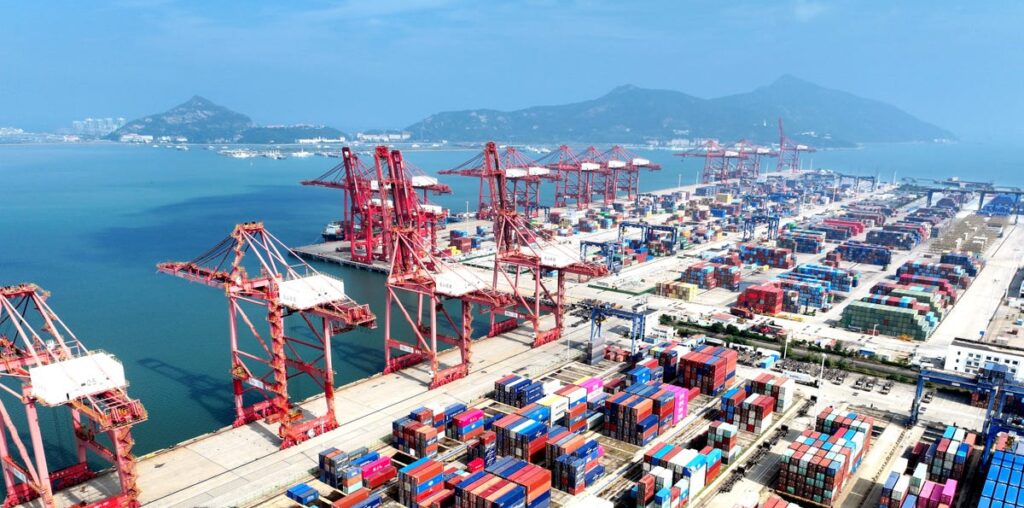- China’s export growth slowed in September, raising concerns about future economic stability.
- The slowdown is attributed to weakening external demand and logistical disruptions.
- China may delay further economic stimulus ahead of the US election, anticipating potential tariffs.
China’s economy hasn’t been doing great for a while, but the manufacturing giant could always count on its exports.
Now, those exports may be in jeopardy even before the US presidential election in November — the results of which could hit those goods even more.
In September, China exported $303.7 billion worth of goods, which was 2.4% higher than a year ago, official data released Monday showed. The market had expected China’s exports to grow 6% on-year in September, according to a Reuters’ poll of economists.
The growth was the lowest in five months and much slower than the 8.7% logged in August.
The slowdown was across the board, with exports to Japan and South Korea contracting from a year ago. Shipments to the US and EU grew just 2.2% and 1.2%, respectively.
Economists attributed the slowdown to weakening external demand.
Lu Daliang, a spokesperson for China’s General Administration of Customs, said in a statement at a Monday press conference that the slowdown in export growth was due to bad weather, logistical disruptions, and a high base from last year.
Even so, the magnitude of the decline was “clearly larger than expected,” said economists at Nomura.
China is already bogged by poor consumer confidence
China’s September export data print is concerning because the country has been dragged by dismal consumer confidence. But it has been supported by robust demand from international buyers, which boosted exports.
The world’s second-largest economy is facing multiple headwinds including a property crisis, high youth unemployment, and deflation — and September’s data showed that it may have more obstacles ahead.
“While one month of data does not make a trend, sustained export weakness would mean that China is losing an important buffer against domestic demand weakness,” wrote economists at BofA Securities on Monday.
China’s September imports also fell short of expectations, growing just 0.3% from a year ago — slower than the 0.5% increase it posted in August.
The timing of the decline in China’s exports also came at an untimely moment — weeks before the US presidential election.
Republican candidate Donald Trump said in February he would slap tariffs of over 60% on China if he wins the election.
This year alone, the US and the EU have already hiked tariffs on Chinese imports, including electric vehicles. The regions say China’s dumping and unfair trade practices have hurt their economies. Beijing has rejected this view, saying the West’s accusations are protectionist and aimed at containing China’s economic growth.
Economists expect Beijing to roll out more measures to prop up growth, which it is targeting around 5% this year. Authorities announced aggressive monetary stimulus in late September — which many analysts said was not enough to boost China’s troubled economy.
On Saturday, China’s finance ministry flagged more fiscal stimulus at a press conference but did not disclose the amount of money it would involve, keeping the markets guessing.
Meaningful action may only come later in the year as Beijing is aiming to “gradually put a floor in place” rather than supercharge the economy at one go, Rory Green, the chief China economist at GlobalData.TS Lombard wrote in a note last week.
China may be holding back on economic stimulus ahead of the US presidential election, Green added.
This is because it’s keeping its powder dry in case Republican candidate Donald Trump wins in the November polls, Green wrote in a separate September note.
“The chance of a Trump victory and 60% tariffs on all Chinese exports to the US puts the onus on Beijing to hold back on stimulus in case it needs to drive growth in 2025,” Green wrote.


